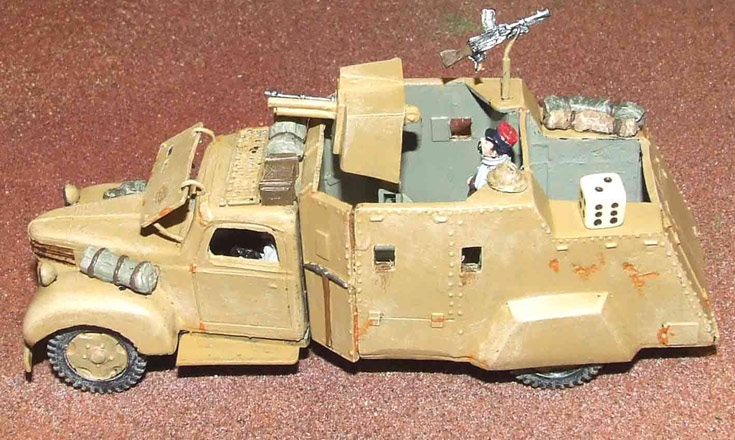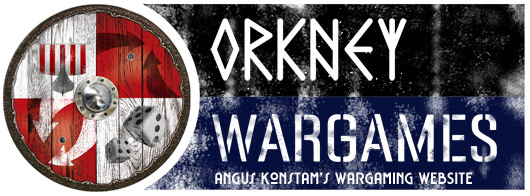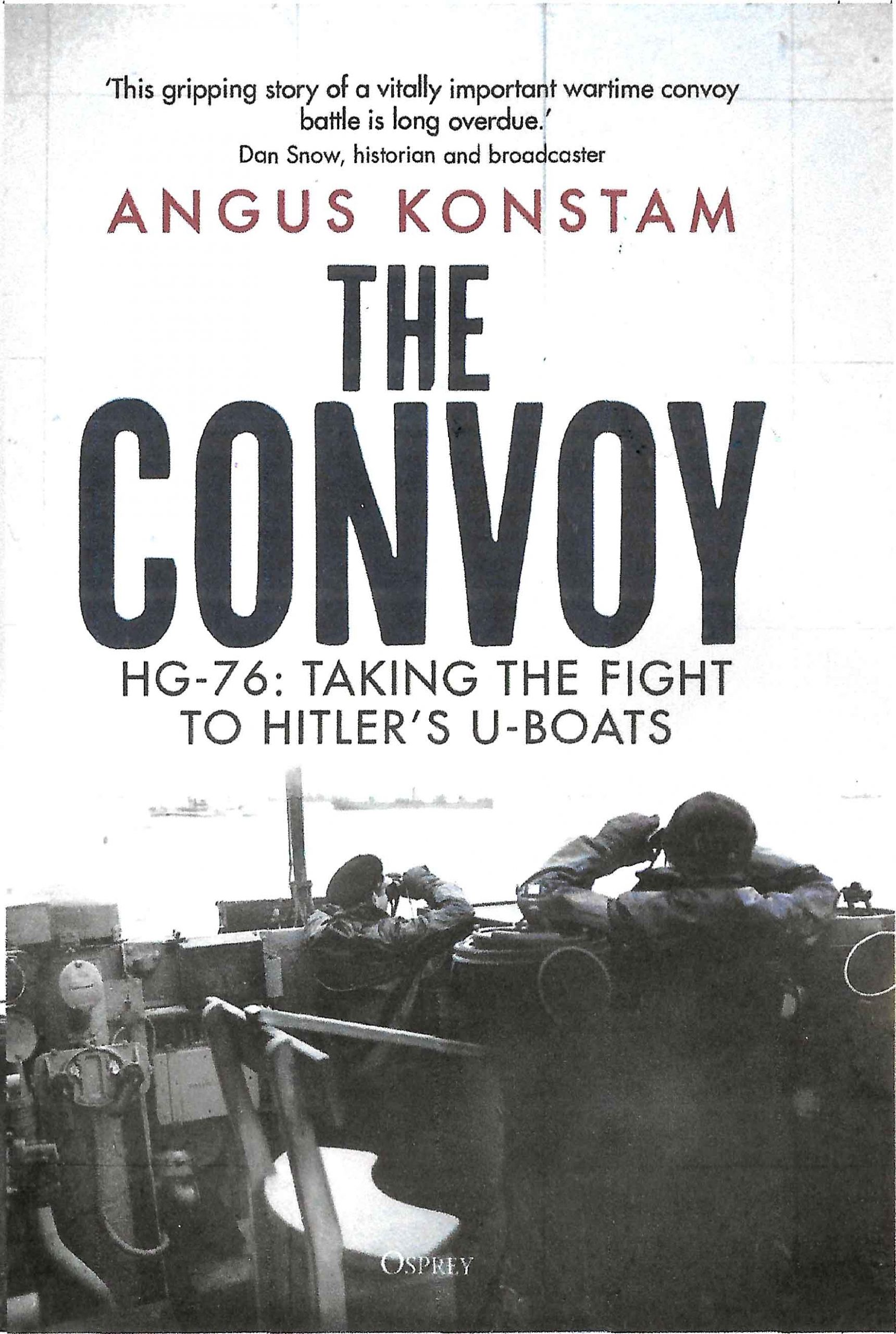
Mansouri, Syria, 1941
11th February 2010, Comments Off
The Second World War, Triumph & Tragedy, 28mm
My wargame pal Colin Jack never takes the obvious path. If he was a Napoleonic wargamer (which he isn’t) he’d opt for the Neapolitans or the Wurttembergers. In Second World War games he avoids sensible theatres like Normandy, Russia or Italy, and opts for more outlandish places. For him, the icing on the cake is the chance to field strange-looking obsolete vehicles that have no place on a battlefield, let alone a wargames table. Well, this was a typical Colin Jack game! The game I’d planned didn’t materialise because my opponent had a domestic crisis, and was “grounded”. Colin kindly invited me to join his game, which was – at least in theory – set in Syria in 1941. This was some sort of encounter battle, with Vichy French Foreign Legion infantry and a pair of Hotchkiss tanks on one side, and the scrapings of the British Empire on the other. Obviously, this small Second World War game was going to be a rather unusual one…
The game I’d planned didn’t materialise because my opponent had a domestic crisis, and was “grounded”. Colin kindly invited me to join his game, which was – at least in theory – set in Syria in 1941. This was some sort of encounter battle, with Vichy French Foreign Legion infantry and a pair of Hotchkiss tanks on one side, and the scrapings of the British Empire on the other. Obviously, this small Second World War game was going to be a rather unusual one… The good guys – an eclectic mix of British Commandos, Australians, Sikhs and Arab Legion – were supported by the strangest collection of vehicles you’re ever likely to see. There was a Crossley armoured car, a Dodge halftrack thing with a gun on it, a captured Schneider armoured car and an unusual Bren carrier belonging to the Indian army. I have to admit, half the fun of the game was the chance to play with this strange-looking but rather useless collection of vehicles…
The good guys – an eclectic mix of British Commandos, Australians, Sikhs and Arab Legion – were supported by the strangest collection of vehicles you’re ever likely to see. There was a Crossley armoured car, a Dodge halftrack thing with a gun on it, a captured Schneider armoured car and an unusual Bren carrier belonging to the Indian army. I have to admit, half the fun of the game was the chance to play with this strange-looking but rather useless collection of vehicles… Triumph & Tragedy is a set of skirmish rules. In it, both sides draw cards, with each one representing a unit, to work out the order in which units move and fire. An initiative number is used to see which player goes first – the higher number winning the initiative. The rules were a bit strange, and they were also heavily modified, so I have to admit I’d no real idea how they worked. Skirmish rules will forever remain something of a mystery for me, so I just went with the flow.
Triumph & Tragedy is a set of skirmish rules. In it, both sides draw cards, with each one representing a unit, to work out the order in which units move and fire. An initiative number is used to see which player goes first – the higher number winning the initiative. The rules were a bit strange, and they were also heavily modified, so I have to admit I’d no real idea how they worked. Skirmish rules will forever remain something of a mystery for me, so I just went with the flow.
The game centred around the control of villages. Both sides had two within easy reach, but had to attack the enemy to win. With true Gallic élan the Foreign Legion started the game off by attacking one of the villages on the British edge of the table. The Commandos got to the edge of the village seconds before the legionnaires appeared, and poured rifle and Bren fire into them. The French were halted, and eventually their assault was broken up. Strike one to the Commonwealth. The real problem was the French armour. Given the junk the British Empire troops were driving around in the two Hotchkiss H-39 tanks looked like powerful machines. Still, one was damaged by machine gun fire from the Crossley, which in turn was disabled by light machine gun fire from a French-held village. At that point a French aircraft appeared, strafed the Australian contingent, and made it rout towards the table edge. That opened the game up again, and it was all to play for.
The real problem was the French armour. Given the junk the British Empire troops were driving around in the two Hotchkiss H-39 tanks looked like powerful machines. Still, one was damaged by machine gun fire from the Crossley, which in turn was disabled by light machine gun fire from a French-held village. At that point a French aircraft appeared, strafed the Australian contingent, and made it rout towards the table edge. That opened the game up again, and it was all to play for. Bizarrely, a second strafing run was prevented by a fluke shot from a Bren gun, which – apparently – hit the pilot, forcing the plane to pull away and crash somewhere off table! The motley selection of Imperial vehicles fired at the remaining French tank, but their shots just bounced off. In the end its commander was killed by a well-aimed hand grenade thrown by a plucky Sikh, and very wisely the tank driver trundled the Hotchkiss off the table. At that point the French conceded the game.
Bizarrely, a second strafing run was prevented by a fluke shot from a Bren gun, which – apparently – hit the pilot, forcing the plane to pull away and crash somewhere off table! The motley selection of Imperial vehicles fired at the remaining French tank, but their shots just bounced off. In the end its commander was killed by a well-aimed hand grenade thrown by a plucky Sikh, and very wisely the tank driver trundled the Hotchkiss off the table. At that point the French conceded the game. The rules were quite strange – you need high die rolls for some things, and low for others, making the system hard to follow, especially without a playsheet. Triumph & Tragedy also tries to reflect unit tactics (with things like unit suppression and morale), while leaving in pure skirmish theatrics, like throwing grenades into tank turrets, or shooting pilots with Bren guns. To be honest, while I’ll certainly try them again, I preferred our good old reliable Chris Peers Contemptible Little Armies system.
The rules were quite strange – you need high die rolls for some things, and low for others, making the system hard to follow, especially without a playsheet. Triumph & Tragedy also tries to reflect unit tactics (with things like unit suppression and morale), while leaving in pure skirmish theatrics, like throwing grenades into tank turrets, or shooting pilots with Bren guns. To be honest, while I’ll certainly try them again, I preferred our good old reliable Chris Peers Contemptible Little Armies system.
The

